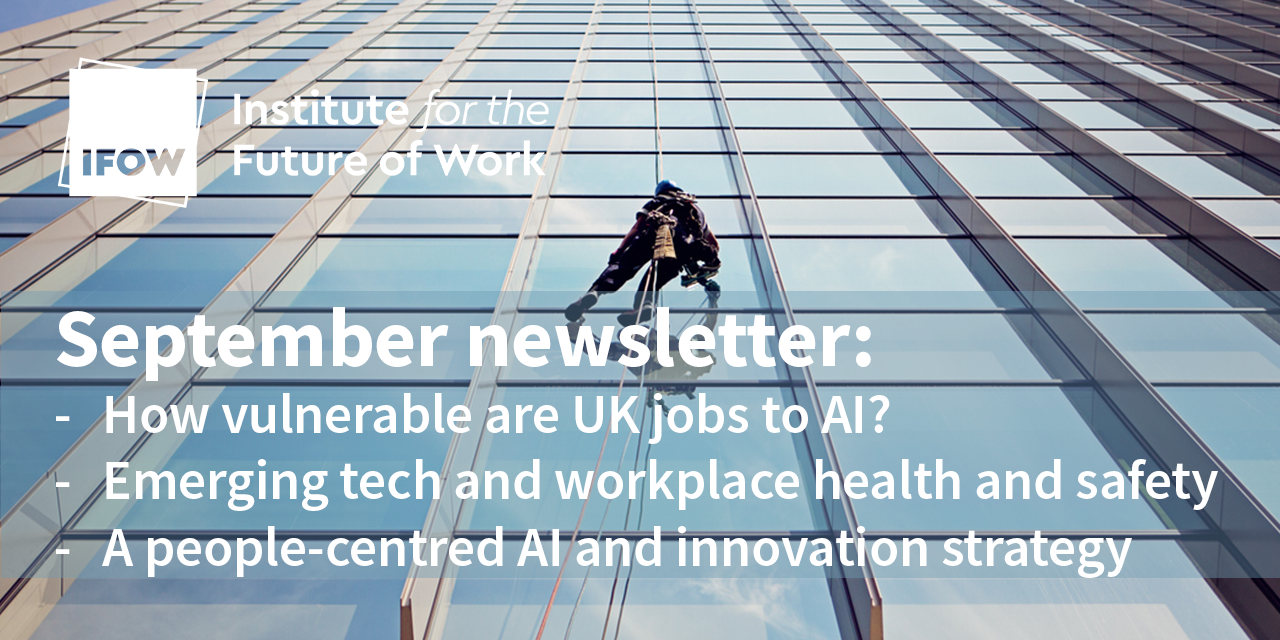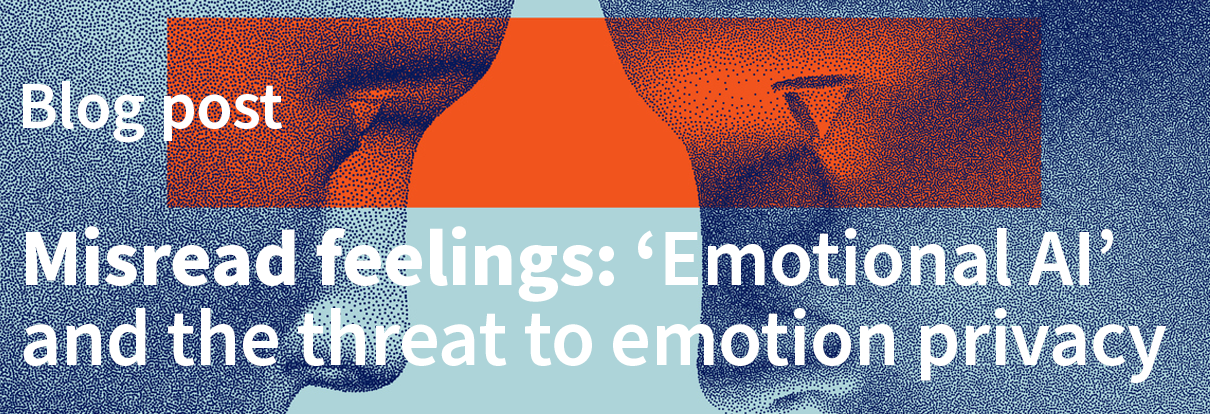We use cookies to personalise and enhance your experience on this site. By clicking Accept or continuing to use the site, you agree to our use of marketing and social media cookies as described in our Privacy Policy.
Accept and close
We hope that you have had a good summer, and are feeling refreshed as September begins. It's been a far from quiet month behind the headlines, with a flurry of closed-door meetings and shifting alliances perhaps beginning to surface as we head into party conference season. With important announcements due on AI and employment legislation, and surrounding scrutiny increasing, this autumn promises to be a key time to steer the future of work.
As we discuss in the Deep Dive below, there is still a great deal that we don’t know about the true impact that new technologies are having on people and work, which makes it even more important that our approach – both in terms of firm-level adoption and potential regulation – are based on the very best research.
Helping us to deliver that, and turn our insight into action, we continue to build our network of Research Fellows and and Fellows of Practice. Working closely with those at the frontline of our future of work research, they are helping develop interventions to operationalise our findings.
Anna and IFOW Team

In our August newsletter, we highlighted a piece in the FT exploring the question of GenAI’s impact on graduate jobs. Our Associate Director, Oliver Nash, advised caution there, noting that, "we should be wary of the dramatic headlines about AI’s impact on hiring”, pushing instead for wider consideration of other factors, including national economic uncertainty, a reduction in hires post-pandemic and increased offshoring. Since then, more evidence has come onstream.
A recent working paper by Erik Brynjolfsson – who spoke at our Pissarides Review conference in January 2023 – finds that, controlling for other effects, “since the widespread adoption of generative AI, early-career workers (ages 22-25) in the most AI-exposed occupations have experienced a 13 per cent relative decline in employment”. This is the first large-scale study that provides robust empirical evidence of the link between AI exposure and decreasing entry-level employment in the US.
In the UK – and caution should be used here as this is not a study that controls for other national factors such as changes to National Insurance - a new Task-Based Index published this month also offers evidence that labour demand in AI-exposed occupations has also weakened, with “vacancy levels in Q2 2025 about 5.5% lower than would be expected if the pre-GPT relationship between AI exposure and hiring had persisted".
However, a study by MIT has found that the vast majority of GenAI pilots are "delivering little to no measurable impact" on growth. Why? Because – they report - the implementation of the technology is flawed, and not integrated properly into organisational workflows. This supports the findings from our survey of 1000 UK firms, which found that a high-involvement HR philosophy and institutional support mechanisms (such as trades unions) are fundamental to tech adoption that supports good work. Moreover, the Guardian’s TechScape newsletter last week reports that “just beneath the breathless promotion of AI, cracks are beginning to appear,” with “a widening schism between the technologists [...] and members of the general public who are sceptical about the hype and see AI as a nuisance in their daily lives”.
In short, while there is emerging evidence that AI is impacting job numbers, it is not reliably delivering on its promise to revolutionise productivity. To ensure that AI avoids being a nuisance, and instead offers better access to good jobs, it is clear that people need to be at the centre of processes of tech adoption.

This report by the Lloyd’s Register Foundation calls for an evidence-led approach to ensure occupational safety and health (OSH) in the workplace. Dr Magdalena Soffia, IFOW Head of Social Research, states that the report comes at a ‘crucial moment’ if we are to successfully begin ‘anticipating and mitigating risks to our most important resources: the workforce’.
Last week, the Trades Union Congress (TUC) published a report calling for the government to develop a human-centred AI and innovation strategy aimed at supporting AI deployment that more equitably benefits employees across the economy. The report draws heavily on IFOW’s Pissarides Review, highlighting in particular the risk of regional and national inequalities becoming further entrenched as AI is adopted at different rates and in different ways across the UK.
Cognitive deskilling is a user’s diminishing ability to complete tasks due to an overreliance on technological tools. What about social deskilling? A new blog post from the Ada Lovelace Institute discusses the diminution of interactive opportunity and capacity in young peoples’ personal, educational and professional lives.
This report by Reuters explores the risks around computational chatbots becoming anthropomorphised as they increasingly add personalisation and empathetic syntax to interactions. This resonates well with IFOW Research Fellow Emine Akar’s blog post Misread feelings: ‘Emotional AI’ and the threat to emotion privacy which outlined concerns around the growth of neurosurveillance in the workplace.

Twenty-five different official data series have been decertified or cancelled in the UK in the past year, according to this article by the Financial Times, risking leaving policymakers without reliable datasets to inform decision-making, and potentially increasing disinformation. We highlighted this issue in our Disruption Index, calling for more consistent and broader data to be collected to better inform the picture on – for example – the impact that AI is having on jobs, as discussed in our Deep Dive above.
What does a ‘safe’ AI system look like? How can we anticipate the risks accurately? Who will make these decisions? Bringing together various issues from this September newsletter, this blog post by the Ada Lovelace Institute addresses the Government’s upcoming legislation consultations and calls for a regulatory framework that supports safe, confident adoption and drives innovation.
UKAIRS brings together researchers from UKRI AI investments to present a broad range of AI-related work, from technical topics to humanities perspectives. The aim is to shape the UK’s research priorities, foster collaboration and inform the narrative around the challenges of delivering AI that benefits both society and the economy.
Chatbot usage is now widespread in the workplace – but what are the real impacts on earnings and recorded hours? This webinar, hosted by the European Trade Union Institute, delves into recent research on the early labour market impacts of AI chatbots.
The Open Data Institute is hosting a webinar on deceptive user interface designs that coerce individuals into compromising their privacy and data security. Learn about the growing insufficiency of traditional privacy safeguards and disclosure systems in an evolving ethical landscape.
The Startup Coalition Tech Hub are hosting a roster of events across the Labour Party Conference, covering topics such as digital inclusion and economic growth, as well as Labour’s vision for technological innovation and competition in the UK. See the full programme of events here.